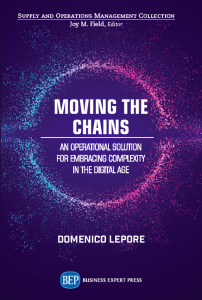
Our lives have changed drastically in a matter of days. It is a surreal experience. The European base for Intelligent Management is in a picturesque location in Italy that should be teeming with early spring tourists. Instead, a few straggling residents are out buying necessities or medicine. Inside the pharmacy, customers keep their distance and the pharmacists wear face masks. Exchanges between pharmacists and customers are a little less jovial than usual.
Everyone, an entire nation, is indoors, respecting the request of the government to keep interactions to a minimum, only going out for things that are strictly necessary: work activities that require a physical presence, medical appointments or grocery shopping. “Smart working” has become the new norm for all those who can continue their work on a computer and via the internet. All the shops and bars are shut. It is something completely unprecedented that no one will have ever experienced in their lifetime – a 24 hour curfew. And it will last for weeks, trying the patience of restless children and their ever-present parents and testing the strength of relationships as people find themselves obliged to live side by side all day long in a way they will never have experienced before. The high number of elderly creates further anxiety as they are the most vulnerable.
This is the experience of lockdown in Italy, where an entire nation of 60 million people has been asked to stay at home, with few exceptions. Italy is living through this right now, and other nations are following suit. But why has this happened to Italy in such a dramatic way? Perhaps in part it is due to the plurality of trade relations between this ever entrepreneurial nation and China, echoing the times of Marco Polo. It is also undoubtedly connected with the amount of testing done that has revealed cases. One thing is certain: no one can know for sure, whether they are a statistician, leader of state, a billionaire, or a military intelligence unit.

The organization of health
The problem of COVID-19 is clearly a health issue. How could it not be? However, if we only look at it in health terms we may miss a very important point: organization. Every year thousands of people die from common flu. Last year in Italy alone 8,000 died with flu but it did not lead to a collapse in the health system. The crisis in Italy that has transformed COVID-19 into an emergency has been created by insufficient availability of ventilators and intensive care facilities for unprecedented numbers of people with serious respiratory issues. This shortage has created a serious “bottleneck” in hospitals with a knock-on effect on the provision of all other forms of healthcare.
This issue is something that there is still time for other countries to address. As readers of this blog will know, we help organizations manage more productively and profitably by managing a strategically chosen constraint. This can become a leverage point for the entire organization, but there is nothing positive about a bottleneck. The accelerated level of interdependencies around the globe creates non-linear phenomena that are unprecedented. Epidemics and other disasters are inevitable and it is literally of vital importance for countries to be equipped in advance so they can preempt catastrophe.
COVID-19 and the Theory of Constraints – what do we do with this experience?
COVID-19 and the Theory of Constraints may not seem an obvious connection, but the Theory of Constraints teaches us to transform a constraint, a limitation, into a leverage point – a way of creating value for the entire system. What can we learn from the Coronavirus experience?
In Italy, what we are experiencing is causing undoubted pain and anxiety to families and the entire business community. On the positive side, it is giving people the opportunity to reflect on what they can do to move forward. Our days are spent online, working on systemic strategies with leaders now acutely aware of the challenges but determined to leverage their intuition and knowledge in the structured way that the Theory of Constraints allows.
This current catastrophe is a unique opportunity for focus and reflection. We can make the choice to evaluate our priorities and leave behind behaviors that do not add real value. We are witnessing the way people are reaching out across the internet with an authentic level of communication and desire to connect and solve problems that is both moving and inspiring. When we emerge from this crisis it will be a different world. Whether it’s in healthcare, government, education or business, let’s use the science and knowledge available to analyze, pre-empt, prepare, not just to survive but to thrive together.
SCHEDULE AN INTRODUCTORY CALL WITH US ‘






Dear ladies and gentlemen,
you have mentioned, that you are “… working on systemic strategies with leaders now acutely aware of the challenges but determined to leverage their intuition and knowledge in the structured way that the Theory of Constraints allows.”
Do you have concrete examples? What I have heard from TOC institute Germany and others and even what can be expected, is, that the humans are so nervious and stressed, that they are not willing to listen to consultants. I can imagine that in Italy it is even more challenging, that someone is willing to ask for support. Normally humans are not capaple to learn something new under such stress situations. And you know, TOC approach is nothing that you can learn intuitive in a short time. The actions that have been taken world-wide are in line with the TOC thinking. But why it takes so long to convert or expand production for intensive care ventilators, why we can not convert our production in Europe to produce Protective clothing and respirators in a very short time. It takes so long time – I would see a huge potential to support this, but I think the people are too stressed. Do you have better experience or an idea, how it could work? I would appreciate if you have an answer for me. I am not a consultant but I am in favour of the TOC approach since many years. And it is hard to convince people about TOC. Not easy in non-stressed times. But now. Would be so valuable…
I can see, that I should agree to publish something. If you would like to do, let me know. For the moment I have little time. My englisch in this letter is not good, I know, but I can not spend more time to optimize it.
Best regards
Dr. Ariane Motsch
I am making a paper regarding TOC, and I included this case about the possible issue, TOC can address. I also need to find other real cases where TOC have had a great impact on certain company/industry. And I can barely find any.
Hi John,
Thanks for your comment. My business novel ‘The Human Constraint’ see http://www.thehumanconstraint.ca contains several major case histories of ours in narrative form. For other case histories, I think you could contact https://www.tocico.org/ and they should be able to help.
Regards,
Angela